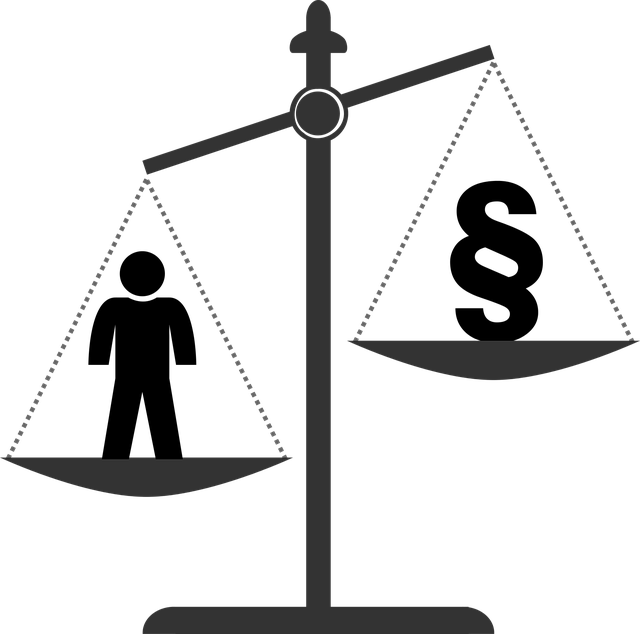Consumer Protection Under Competition Law is crucial for litigation support services, safeguarding consumers' rights against business unfair practices. This domain ensures fair market transactions through transparency and accountability in product quality, advertising, pricing, etc. Specialized legal expertise aids in navigating complex cases like antitrust lawsuits, exposing anti-competitive behaviors like price-fixing and market allocation. Strategic approaches, data analytics, and collaboration lead to successful outcomes, deterring unethical conduct and promoting market transparency. Future advancements in technology, including AI and blockchain, will further enhance efficiency and protect consumer interests.
Litigation Support Services play a pivotal role in safeguarding consumer rights, especially within the framework of Consumer Protection Under Competition Law. This article delves into the essential components of this legal landscape, exploring how these services ensure fair market practices and effective strategies for consumer protection. We analyze notable case studies, highlighting successful consumer litigation outcomes, and gaze into future trends, demonstrating the evolving role of litigation support in a dynamic legal environment.
- Understanding Consumer Protection Law: A Foundation for Litigation Support
- The Role of Litigation Support Services in Ensuring Fair Market Practices
- Strategies for Effective Consumer Protection Under Competition Law
- Case Studies: Notable Success Stories in Consumer Litigation
- Future Trends and Innovations in Litigation Support for Consumer Rights
Understanding Consumer Protection Law: A Foundation for Litigation Support
Understanding Consumer Protection Law is an integral part of providing effective litigation support services. This field encompasses a range of regulations aimed at safeguarding the rights of consumers in their dealings with businesses. It serves as a critical foundation for legal professionals, especially those specializing in white-collar defense, as it plays a pivotal role in various stages of the investigative and enforcement process under competition law. By comprehending these laws, attorneys can navigate complex cases involving unfair business practices, misrepresentations, and anti-competitive conduct.
Consumer Protection Laws are designed to ensure fair market transactions, providing transparency and accountability for businesses. They cover a wide array of issues, from product quality and safety to advertising claims and pricing. Effective litigation support in this domain requires a deep understanding of these laws and their implications on different industries. This knowledge enables legal experts to offer strategic guidance during jury trials and other legal proceedings, ultimately helping clients navigate the intricacies of consumer rights and business liability.
The Role of Litigation Support Services in Ensuring Fair Market Practices
Litigation Support Services play a pivotal role in upholding fair market practices and ensuring consumer protection under competition law. These services are instrumental in navigating complex legal landscapes, especially during antitrust lawsuits or investigations. By employing advanced data analytics, expert witnesses, and strategic case management, they aid in uncovering illegal business practices that might distort markets and harm consumers. This includes anti-competitive behaviors such as price-fixing, market allocation, or abuse of dominant market positions, which are often challenging to detect without specialized support.
Through meticulous document review, competitive intelligence, and economic analysis, these services help in building robust cases for both prosecutors and general criminal defense attorneys alike. By strengthening the evidence and arguments presented in court, they contribute to winning challenging defense verdicts across the country. This ultimately fosters a level playing field, ensuring that businesses operate within ethical boundaries and respect consumer rights, thereby promoting fair market competition.
Strategies for Effective Consumer Protection Under Competition Law
To ensure robust Consumer Protection Under Competition Law, law firms offering litigation support services must employ strategic approaches throughout all stages of the investigative and enforcement process. This involves meticulous documentation and evidence collection to prove anti-competitive practices, such as price-fixing or market allocation, which can lead to significant legal repercussions for offending entities. A key aspect is staying proactive in identifying potential violations, analyzing market trends, and scrutinizing business interactions to gather compelling insights that strengthen cases.
By integrating these strategies, law firms can effectively navigate the complexities of competition law. This not only aids in achieving favorable outcomes in civil litigation but also helps clients avoid the pitfalls of a general criminal defense, including the possibility of indictment. Ultimately, the goal is to foster fair market competition and protect consumers from harmful business practices through well-planned, data-driven legal strategies.
Case Studies: Notable Success Stories in Consumer Litigation
In the realm of consumer protection under competition law, case studies serve as vivid examples of notable success stories in consumer litigation. These real-world scenarios highlight the critical role of specialized litigation support services in navigating complex legal landscapes. Through meticulous investigative and enforcement processes, these cases have not only secured justice for aggrieved consumers but also deterred unethical business practices, fostering a more transparent market environment.
By delving into all stages of the investigative and enforcement process, from gathering evidence to presenting arguments in court, litigation support services play an indispensable role. Notable successes in consumer litigation often involve strategic partnerships between legal experts, data analysts, and technology specialists. This collaborative approach not only strengthens the case but also ensures that the interests of both consumers and philanthropic and political communities are served, ultimately avoiding indictment and promoting a fair and equitable marketplace.
Future Trends and Innovations in Litigation Support for Consumer Rights
The future of litigation support services is poised for significant advancements, particularly within the realm of consumer rights protection under competition law. As legal landscapes evolve, innovative tools and technologies are set to play a pivotal role in ensuring fair practices and safeguarding consumer interests. One notable trend is the increased adoption of advanced data analytics and artificial intelligence (AI). These technologies can sift through vast volumes of documents, identify patterns, and uncover relevant evidence more efficiently than traditional methods. This capability not only accelerates the litigation process but also empowers legal professionals to build stronger cases for their clients.
Furthermore, the integration of blockchain technology is expected to revolutionize record-keeping and documentation in legal proceedings. Its decentralized nature enhances transparency and security, reducing the risk of fraudulent activities or alterations in evidence. By leveraging these emerging trends, litigation support services can offer more comprehensive, accurate, and timely assistance to individuals and philanthropic and political communities alike, ensuring that consumer protection remains a cornerstone of fair competition in the digital age and beyond.
Litigation Support Services play a pivotal role in upholding consumer rights by facilitating the enforcement of Consumer Protection Under Competition Law. By employing strategic approaches outlined in this article, such as thorough understanding of legal frameworks, innovative case management, and analysis of market practices, these services ensure fairness and protect consumers from exploitative practices. The success stories highlighted through case studies demonstrate the tangible impact of efficient litigation support, paving the way for future trends that will continue to revolutionize consumer protection efforts. As legal landscapes evolve, staying informed about these developments is crucial for both legal professionals and consumers alike.






